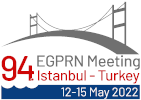Utilizing Google Trends to Assess Global Interest for Cancer Screening Tests
Eda Yaldirak
Keywords: google trends, cancer screening, mammography, prostate specific antigen, colonoscopy, pap smear
Background:
Preventive care is one of the cornerstones of family medicine and primary care. Health policies focusing on health promotion and prevention require up-to-date epidemiological data. Unfortunately, traditional surveillance systems fall short in providing timely data for designing preventive health strategies. They are costly and cumbersome and vulnerable to recall bias. Recent IT solutions for data acquisition, like Google Trends, may be a fast and effective way to investigate trends in interest in various health-related topics, like cancer screening.
Research questions:
How does Google Trends reflect cancer screening awareness compared to existing surveillance systems?
Exploring worldwide google search trends for cancer screening to better guide strategies for preventive care.
Method:
We aimed to perform a uniform assessment of the global interest for cancer screening tests using data from Google Trends. Google Trends measures the popularity of a search term in a given week compared to the popularity of all search terms in that week, calculated as relative search volume (RSV). First, we plotted prospectively recorded data on the favor of mammography, prostate-specific antigen (PSA), colonoscopy, and PAP smear across 171 countries for the last five years (2017-2022). Then, we compared those Google Trends findings with timely epidemiological cancer incidence data.
Results:
The most common cancer in a particular country and the frequency of searches for its' screening test were in accordance with its' epidemiology.
In developed countries, cancer awareness months were stimulating eager interest in prevention methods as reflected in an increase in the number of searches for the related screening tests (e.g., mammography for breast cancer, psa for prostate cancer)
Conclusions:
Analysis of internet searches can give insight into people's information-seeking behavior. Investigating and understanding information-seeking behavior can be used to improve health care delivery. Furthermore, we can do a sample country review regarding the events organized during cancer awareness months.
Points for discussion:
What role does the Google search engine play in information-seeking behavior regarding cancer screening tests?
What are the reasons for the increase in searches during cancer awareness months in developed countries?
How can public search engine data documenting health information seeking behaviour be exploited for health policy strategies?

